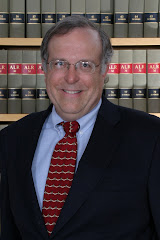In this Column . . .
Who Are the Lawyers on Sawyer?
(contact information and email links)
And. . .Did You Know
- About the American Rule on Attorneys Fees?
- About the Unconstitutional and Unnecessary Proposed Special Events Permit for the City of Oshkosh?
- How Mediation and Arbitration Help and Hurt the Legal Process
- About Easements?
-$8,000 First Time Homebuyer's Tax Credit
-What To Do First When A Loved One Dies
-Home Improvement Laws
FYI - We will post relevant comments & corrections after reviewing them. Just click on the comment link.
(contact information and email links)
And. . .Did You Know
- About the American Rule on Attorneys Fees?
- About the Unconstitutional and Unnecessary Proposed Special Events Permit for the City of Oshkosh?
- How Mediation and Arbitration Help and Hurt the Legal Process
- About Easements?
-$8,000 First Time Homebuyer's Tax Credit
-What To Do First When A Loved One Dies
-Home Improvement Laws
FYI - We will post relevant comments & corrections after reviewing them. Just click on the comment link.
Who Are the Lawyers on Sawyer?
Kindt Phillips Friedman & Fremgen, SC
141 N. Sawyer St.
Oshkosh, Wisconsin 54902
920-231-1500
www.oshkoshattorneys.com
Email a Lawyer on Sawyer
Chris Kindt
Andy Phillips
Ken Friedman
141 N. Sawyer St.
Oshkosh, Wisconsin 54902
920-231-1500
www.oshkoshattorneys.com
Email a Lawyer on Sawyer
Chris Kindt
Andy Phillips
Ken Friedman
Thursday, April 9, 2009
Did you Know: Wisconsin Laws Protect Consumers from False Advertising
Many states have laws designed to discourage false advertising statements. Wisconsin's laws allow individuals and legal entitles who suffer monetary damages because of untrue, deceptive or misleading advertising statements to sue the seller and, in many cases, recover their attorney fees. That law is Wis. Stats. 100.18 (fraudulent advertising). (see ATCP factsheet & footnote 1)
What is a false advertising statement under Wis. Stats. 100.18?
False advertising is any communication, written or oral, made to the public, that is untrue, misleading or deceptive. The public includes anyone - even a single individual who does not have a "particular relationships" with the seller.
Let's take it a step at a time. Any communication is an advertisement. Say Joe is selling his home. Advertising communications include newspaper ads, internet ads, spec sheets (like a realtor's handout), the real estate condition report and oral statements, as long as the communication is made before an offer is accepted. Joe tells Lookie Lou, "I had a building permit for my deck." If Lookie Lou makes an offer and discovers there was no building permit and the deck does not meet code, Joe is liable for false advertising. If Lookie Lou has to rebuild the deck, he can recover his costs and, if Lookie Lou wins in court, his attorney fees.
What is a "particular relationship?"
Most often, it is a sales contract or a previous customer relationship. If Joe has accepted Lookie Lou's offer to purchase the house, they have a particular relationship. In that case, the statute does not apply.
Puffery is to be Expected, Not Prosecuted.
Puffery is a qualitative statement, usually an exaggeration, whose truth cannot be determined. Joe is using puffery when he says "this is the best house on the block." Other examples of puffery include: "extensively remodeled," "move-in condition" and "Be the envy of the neighborhood." The Supreme Court has held that puffery is the accepted and expected exaggeration of quality by salespeople.
For more information, email Ken Friedman, call him at 920-231-1500 or post a comment here.
(1) Other laws that may apply in special cases include Wis. Admin. Code ATCP 110.02 (Home Improvement Practices/Prohibited Trade Practices) and Wis. Stats. 895.446 which allows a private right of action for violations of 943.20(1)(d) theft by fraud (as well as certain other criminal violations).
.
What is a false advertising statement under Wis. Stats. 100.18?
False advertising is any communication, written or oral, made to the public, that is untrue, misleading or deceptive. The public includes anyone - even a single individual who does not have a "particular relationships" with the seller.
Let's take it a step at a time. Any communication is an advertisement. Say Joe is selling his home. Advertising communications include newspaper ads, internet ads, spec sheets (like a realtor's handout), the real estate condition report and oral statements, as long as the communication is made before an offer is accepted. Joe tells Lookie Lou, "I had a building permit for my deck." If Lookie Lou makes an offer and discovers there was no building permit and the deck does not meet code, Joe is liable for false advertising. If Lookie Lou has to rebuild the deck, he can recover his costs and, if Lookie Lou wins in court, his attorney fees.
What is a "particular relationship?"
Most often, it is a sales contract or a previous customer relationship. If Joe has accepted Lookie Lou's offer to purchase the house, they have a particular relationship. In that case, the statute does not apply.
Puffery is to be Expected, Not Prosecuted.
Puffery is a qualitative statement, usually an exaggeration, whose truth cannot be determined. Joe is using puffery when he says "this is the best house on the block." Other examples of puffery include: "extensively remodeled," "move-in condition" and "Be the envy of the neighborhood." The Supreme Court has held that puffery is the accepted and expected exaggeration of quality by salespeople.
For more information, email Ken Friedman, call him at 920-231-1500 or post a comment here.
(1) Other laws that may apply in special cases include Wis. Admin. Code ATCP 110.02 (Home Improvement Practices/Prohibited Trade Practices) and Wis. Stats. 895.446 which allows a private right of action for violations of 943.20(1)(d) theft by fraud (as well as certain other criminal violations).
.
Subscribe to:
Post Comments (Atom)

This is great stuff
ReplyDelete